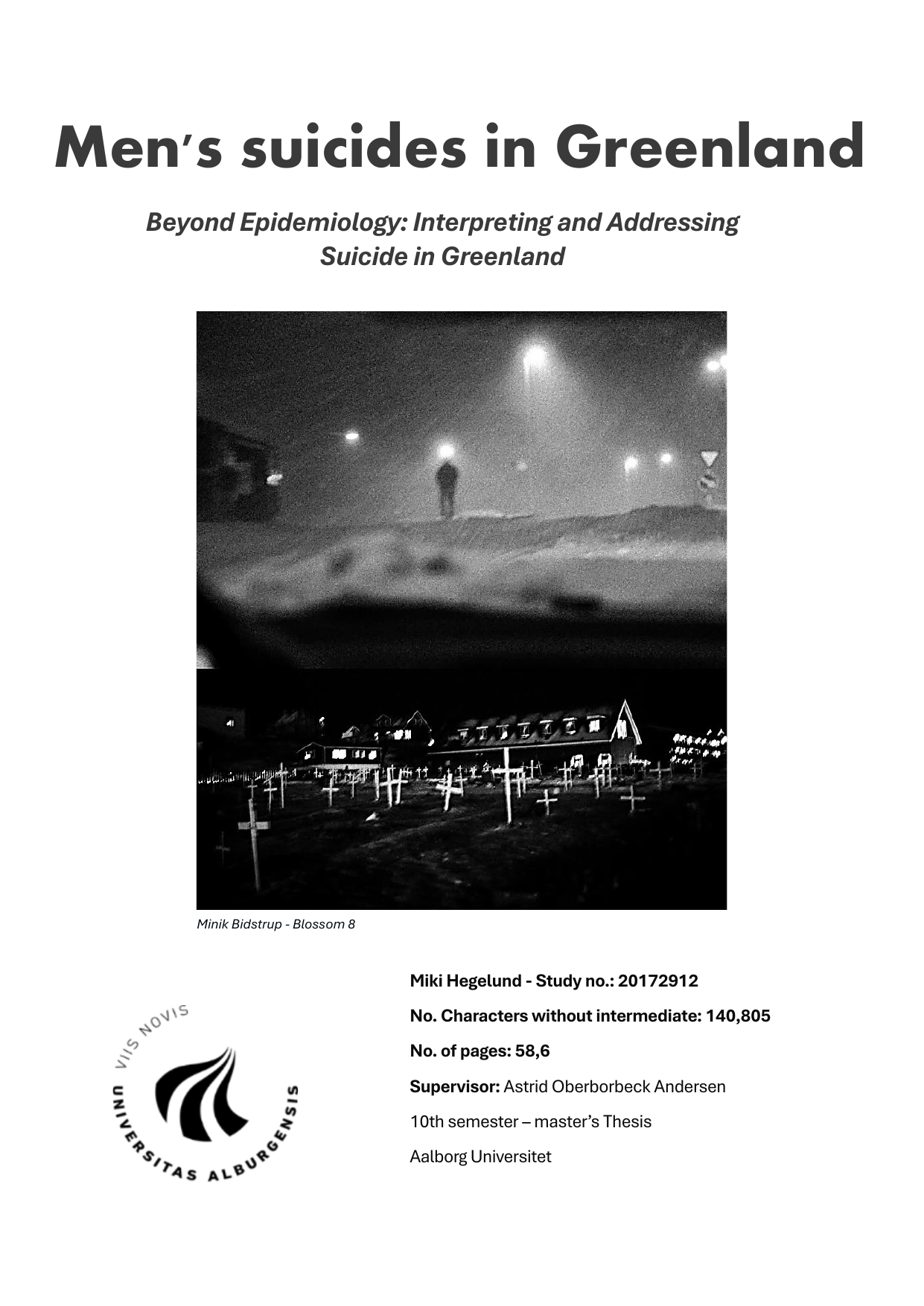
Men's suicides in Greenland - Beyond Epidemiology: Interpreting and Addressing Suicide in Greenland
Term
4. term
Publication year
2025
Submitted on
2025-10-02
Pages
58
Abstract
This thesis investigates the persistently high suicide rates among men in Greenland, with a particular focus on young men in remote settlements who are disproportionately af-fected. Drawing on both quantitative register data and qualitative discourse analysis, the study links statistical patterns with a critical examination of suicide prevention strategies, especially the national Qamani strategy. While mental illness, substance abuse, and socio-economic disadvantage are often cited as explanatory factors, this thesis argues that such accounts remain insufficient without consideration of colonial history, cultural disruption, and shifting gender roles. The analysis is framed by decolonial theory, Critical Suicidology, and research on Arctic masculinities, allowing suicide to be understood not merely as individual pathology but as a phenomenon rooted in structural inequalities, cultural dislocation, and gendered vul-nerabilities. Methodologically, the study employs a mixed approach: statistical mapping of men’s living conditions and suicide patterns is combined with Fairclough’s critical dis-course analysis of policy documents. The World Health Organization’s public health framework is used as a comparative tool to evaluate the scope and limitations of Green-land’s current strategies. Findings show that existing policies tend to privilege medical-psychological rationales while underemphasizing structural and cultural dimensions, thereby limiting the long-term effectiveness of prevention. The thesis highlights significant knowledge gaps, partic-ularly concerning protective factors, gender-specific vulnerabilities, and mechanisms for dynamic monitoring. It proposes a participatory prevention model that integrates statis-tical indicators with community-defined measures of resilience, thereby combining WHO’s systematic approach with decolonial commitments to epistemic justice and indig-enous sovereignty. By situating suicide among men in Greenland within broader social, historical, and cul-tural contexts, this thesis contributes to a more nuanced and comprehensive understand-ing of the crisis and offers pathways for developing more effective, culturally grounded, and gender-sensitive prevention strategies.
Keywords
Documents
